Our Team
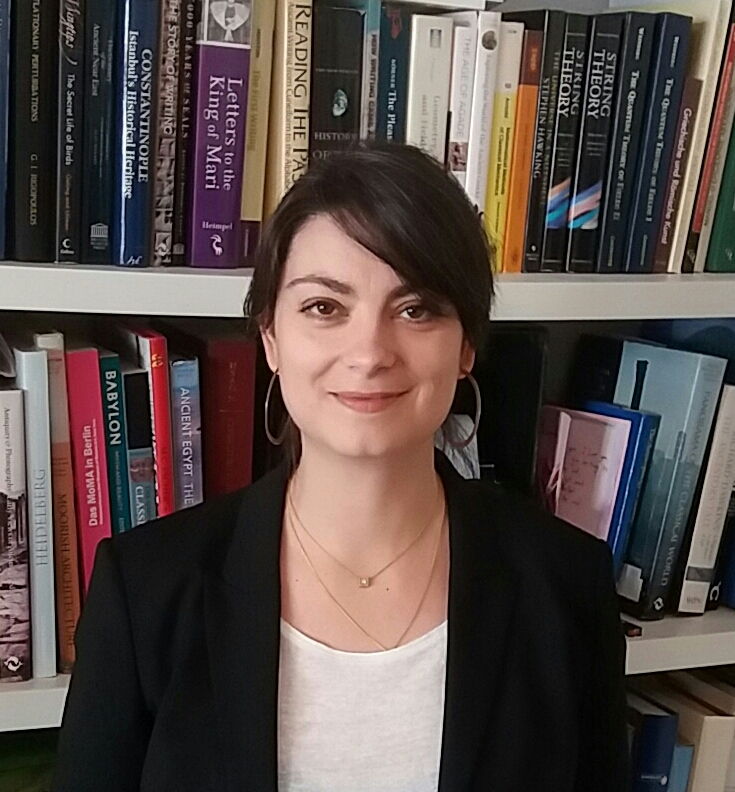
Dr Christina Tsouparopoulou, Principal Investigator
Dr Christina Tsouparopoulou is an Assistant Professor in Mesopotamian Archaeology at the Institute of Archaeology, UKSW. She is also a part-time Lecturer and Honorary Research Fellow at Durham University. She works at the interface between material, visual and textual culture with a strong interest in digital humanities and their application in archaeology and ancient history. She has held research and teaching positions at the University of Helsinki, the Max Planck Institute for the History of Science in Berlin, the University of Heidelberg, Newcastle University, and the University of Cambridge, where she was joint PI in the project “Memories for Life: Materiality and Memory of Ancient Near Eastern inscribed private objects”, a 4.5-year collaborative project funded by the Swedish Research Council (with Jakob Andersson, Uppsala), which aimed to identify and highlight the personal perspective, materiality and agency in inscribed objects commissioned by private individuals in the ancient Near East throughout three millennia. At Cambridge, she was also PI of the project “Plotting the material flows of commonplace Late Bronze Age cylinder seals in Western Eurasia”, funded through a Marie-Skłowowska Curie Fellowship, looking at the interconnections of societies and the flows of cylinder seals made of faience in the Eastern Mediterranean, Caucasus and the ancient Middle East. Christina currently serves as the editor of Near Eastern Archaeology.
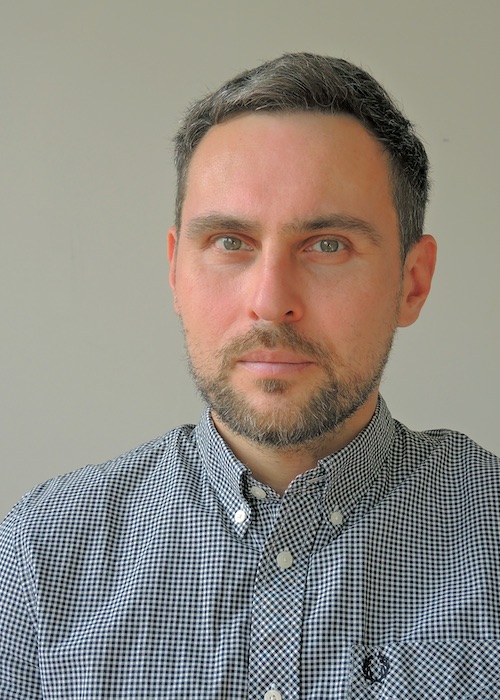
Dr Rafał Solecki, Co-Investigator
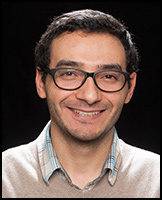
Dr Latif Oksuz, Postdoctoral Researcher
Dr Latif Oksuz is a postdoctoral researcher on the Mesopotamian Material Religion (MeMaRe) project at the Cardinal Stefan Wyszyński University (UKSW) in Warsaw. He earned his PhD in Archaeology from Durham University in 2024, with a dissertation titled Mortuary Practices in Bronze Age Anatolia: A Quantitative Analysis of Temporal and Regional Trends. His doctoral research drew on a comprehensive dataset of more than 9,000 graves from over 400 sites, employing GIS and spatial statistics to uncover regional and chronological variations in burial traditions. These findings shed light on the interplay between social hierarchies, identity, and cultural interaction in ancient Anatolia, offering new perspectives on the dynamics of power and inequality in the Bronze Age.
In addition to his doctoral research, Dr Oksuz has published in Palestine Exploration Quarterly and presented his work at major international conferences, including the American Schools of Oriental Research (ASOR), the British Association of Near Eastern Archaeology (BANEA), and ARWA. He has also contributed actively to the professional community as a steering committee member for BANEA, where he helped implement inclusive and decolonising policies.
His broader research interests include funerary archaeology, burial customs, mortuary practices, GIS and spatial analysis, material religion, Bronze Age archaeology, and the archaeology of Anatolia, the Near East, and the Mediterranean, with a particular focus on how funerary traditions reflect identity, social inequality, and cultural interaction.
Huyam Khaild, Research Assistant
Karolina Przyłęcka, Research Assistant
Former Members
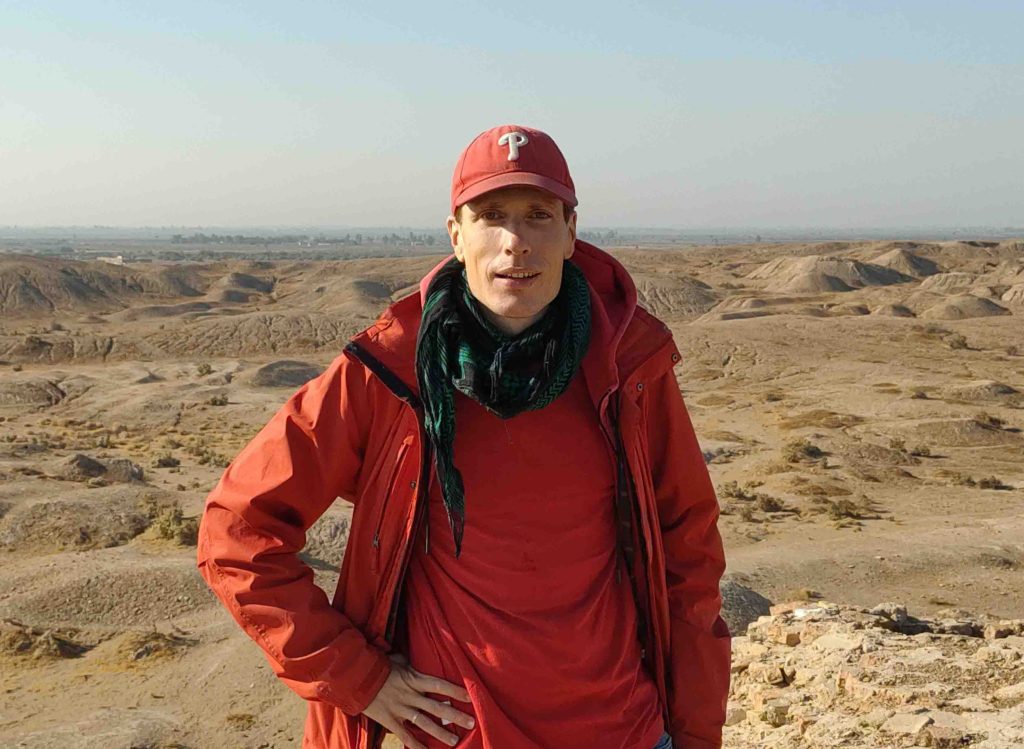
Dr Bernhard Schneider, Postdoctoral Researcher
Dr Bernhard Schneider is a Mesopotamian Archaeologist specializing in the sacred landscape of Southern Mesopotamia with fieldwork experience in Austria, Armenia, Georgia, Iraq and Syria. In 2021 he was the field archaeologist of the Chicago expedition to Nippur (Season 21). His PhD thesis (Innsbruck) concerned the archaeological evidence of the temple of Enlil, Ekur, at Nippur from a diachronic perspective. He was holding a post-Doc scholarship granted by the Austrian Academy of Sciences (OeAW) in 2020, during which he focused on the broader evidence of the Neo-Babylonian and Achaemenid period. In 2023 he published his first monograph concerning the first millennium BC ziggurat at Nippur. Bernhard is now a PI in a project studying the rural landscape of Southern Babylonia (Marie Sklodowska-Curie Actions COFUND with NCN Poland) at the University of Wroclaw (2024-25).
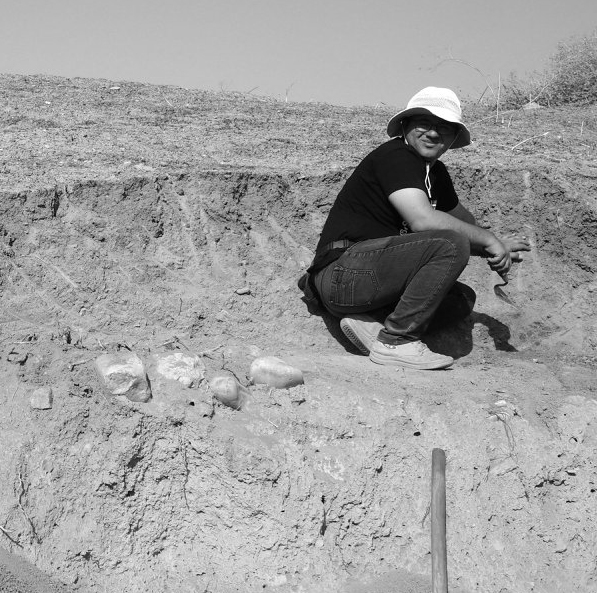
Salahaddin Ebrahimipour, Research Assistant
Salahaddin Ebrahimipour is a PhD student in archaeology at Eötvös Lóran University (ELTE) in Hungary. His research concentrates on the material culture of Iron Age III in northwestern Iran and northern Mesopotamia, specifically focusing on Mannean and Assyrian archaeology. His expertise also includes professional training in GIS, 3D visualisation, and database management, particularly within the field of archaeology. Since 2015, Salah has actively engaged in archaeological fieldwork in Iran. In 2019, he was a member of the DAEI (Danish Archaeological Expedition in Iraq), conducting excavations at Gird-i-Gulak in Iraqi Kurdistan. Salah is now Database Manager at the EAMENA Project in the University of Oxford.
